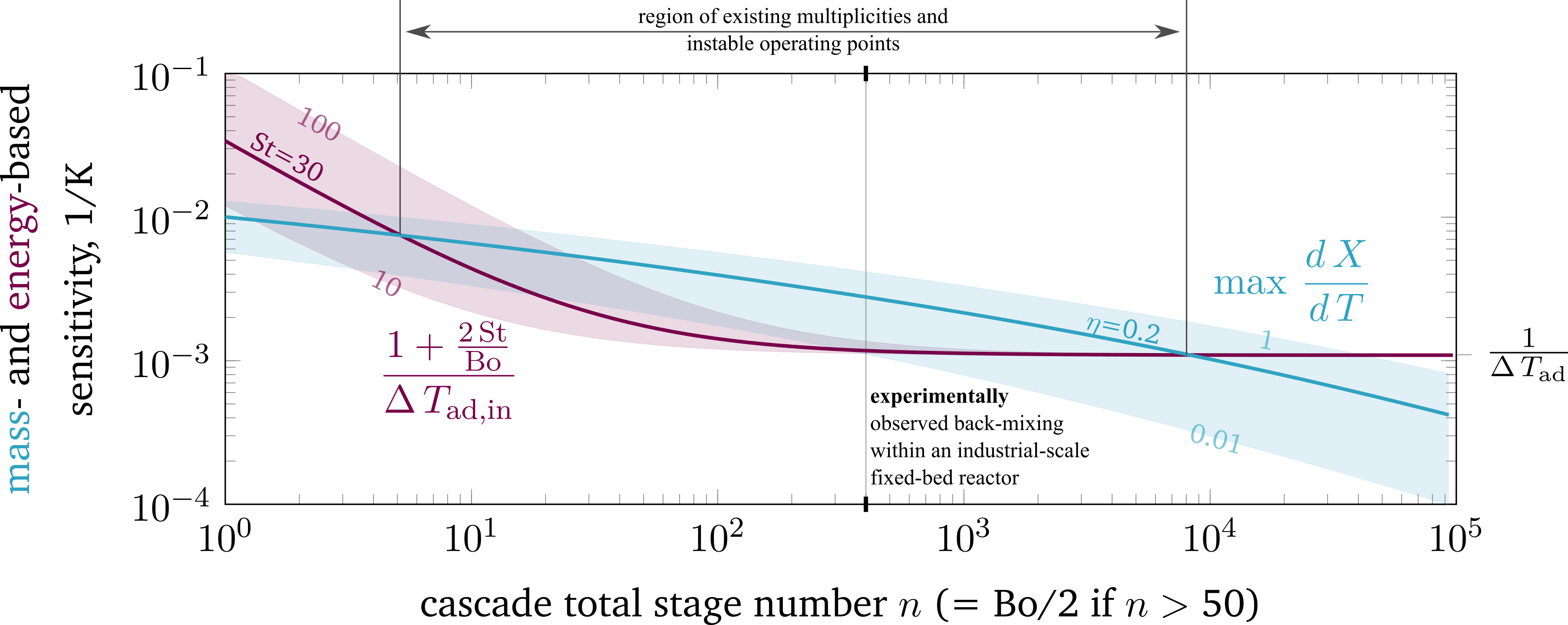2022 Annual Meeting
(430g) Novel Multiplicity and Stability Criteria for Polytropic Fixed-Bed Reactors
Authors
Based on a continuous stirred tank reactor (CSTR) cascade modeling approach, this work derives novel criteria for stability, multiplicity, and uniqueness applicable to real polytropic reactors with ï¬nite back-mixing. The novel criteria indicate that thermo-kinetic multiplicities induced by back-mixing remain relevant even for high Bodenstein numbers (see Fig. 1). In consequence, generally accepted back-mixing criteria (e.g., Mearsâ criterion) appear insufï¬cient for real polytropic reactors. The criteria derived in this work are applicable to any exothermic reaction and reactors at any scale. Ignoring uniqueness and multiplicity would disregard a broad operating range and thus a substantial potential for reactor resilience and ï¬exibility. Furthermore, other features such as reactor runaway are demonstrated experimentally and underpin the relevance of the derived criteria. The novel criteria firstly present an a priori estimate of these characteristics for polytropic fixed-bed reactors with finite back-mixing, which makes them easy to use for reactor design, operation, and safety analysis.
Figure 1. Mass- and energy-based sensitivity for criteria evaluation on a broad axial dispersion range.
